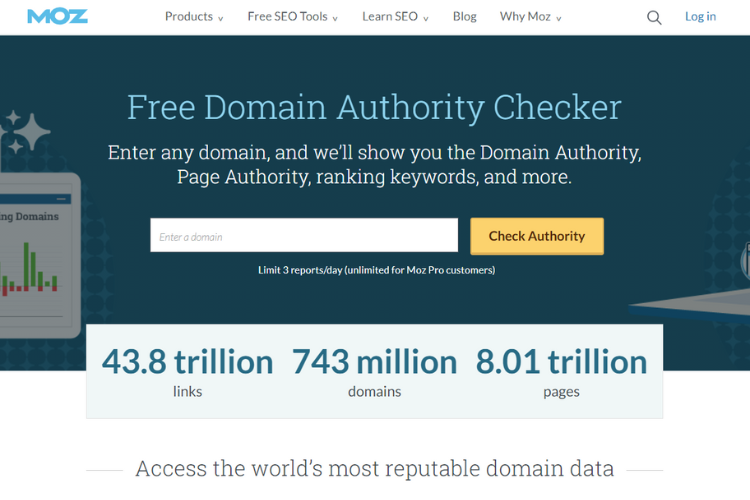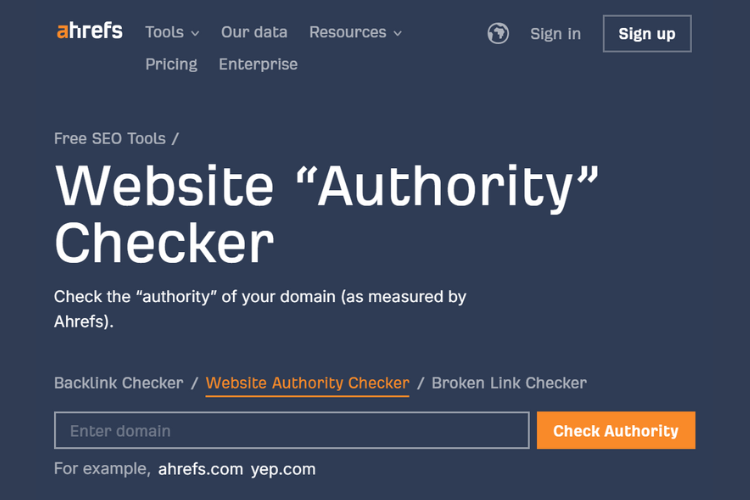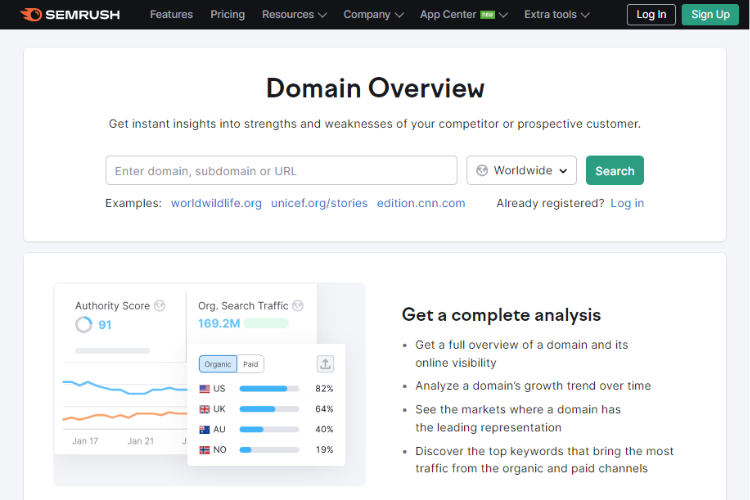Our Links Are Trusted By 2,500+ SEO Agencies
Our Links Are Trusted By 2,500+ SEO Agencies
By the Rhino Rank team
16th Oct 2023

If you’re running a website, you’ve probably heard how powerful backlinks are and may be interested in leveraging them for your site’s growth.
For years, backlinks, also called inbound links, have been an important part of most search engine optimization (SEO) strategies.
Google and other search engines use backlinks when discovering and ranking websites, so knowing about them is crucial for optimizing your online presence.
This article will delve into backlink fundamentals, explaining what they are and why they are important for SEO.
High authority backlinks are links that come from a highly trusted website, usually with a high domain rating (DR) or high domain authority (DA) of at least 70.
However, Google employs more sophisticated criteria when ranking pages. In other words, finding a website with a high DA ranking lower than a low DA wouldn’t be surprising.
So, for a link to be a true high authority backlink, other factors like website quality and relevancy play an important role in addition to DA and DR score.
There are three different levels of authority, including domain authority, page authority, and link authority.
Domain authority (DA) simply refers to how reputable a website is in a given industry or niche.
Moz, a well-known and reputable search engine optimization (SEO) software company, developed a domain authority ranking system where websites are ranked on a scale of 1-100.
Three main factors largely influence the DA score of a website, and they include:
To check a website’s domain authority, you must use technical SEO tools provided by SEO companies.
Different companies use different metrics to determine the score of a website’s domain authority. However, the fundamentals tend to remain the same across several tools.
Moz tool: Domain authority checker provided by Moz is arguably the most popular tool SEO professionals use. Moz coined the term domain authority and popularized it, and they also have the best crawlers that help check authority. Moz’s tool is called Mozbar, and it’s free to use.

Ahrefs: The best alternative to Mozbar is the Ahrefs authority checker. It is equally powerful than Moz’s and is free to use. However, their term differs from other tools. For example, domain authority is called domain rating (DR).

Semrush: Semrush is a popular SEO and digital marketing tool, and in its arsenal of SEO tools, there is a domain authority checker tool. To check a website’s DA with Semrush, you’ll have to paste the site’s link on the domain checking field and click search.

Having a higher domain authority means higher rankings leading to more organic traffic. Websites should be keen on improving their authority to gain a competitive advantage in the SERPs.
So, how can one increase the domain authority of a website? Here are a few different ways:
Since a website’s domain authority can be scored on a scale of 1-100, companies and online businesses have always wondered about the best domain authority level.
One DA score is the worst, while the best is 100.
However, there is no ideal level of domain authority since a lot goes into making a website successful. Your target market will decide the metrics you must earn to succeed.
For example, if you’re entering a market with little competition, you’re likely to be successful even with low domain authority. Markets with high competition will require much work to succeed; therefore, your domain authority will improve as you work on your site.
Some SEO tools can help you analyze your competition, including their domain authority, giving you an overview of what is expected of you to compete with them.
Of course, always aim for a higher domain authority since it’s a good authority metric to guide your SEO and link-building efforts.
Page authority is a metric that indicates how well a page will and should rank after being published. The higher the score of a particular page is, the more likely it will rank high in search engines.
A few factors that influence a page authority score are:
Link authority is another level of authority that helps a website rank well in search engines and drive more traffic.
Unlike the other groups of authority that have dedicated popular tools to check their scores, link authority has none. Moz has a link explorer; however, it shows the page authority of the link. It’s also important to be keen about the authority scores of your links because the higher the score, the better.
Like domain and page authority, several factors influence a link’s authority. They include the following:
Google is the biggest search engine and therefore has to screen every link before showing the link’s content to its visitors. Google’s process of evaluating a link’s quality involves using a complex algorithm considering several factors.
Some key factors include:
When building a website’s authority, you can be unsure whether to focus on the quality or quantity of the backlinks. Some SEO professionals swear by link quality, while others will try to balance quality and quantity.
So, which route should you take?
Well, the more backlinks your site gets, the more traffic it can get. But how many backlinks are needed? There is no exact number of incoming links preferred, but if many websites build citations based on your content, your trust score in the search engines increases, improving your ranking.
People who prefer link quantity argue that acquiring links from low to medium-authority, non-spammy sites is easier. This way, the link-building process is quicker.
The downside of link quantity is that you risk attracting links from spammy sites with little or no reputation.
Some digital marketers prefer link quality over quantity, and here are some of their reasons.
The first reason is that the links are high-quality, from authority websites, and can improve your rankings and traffic.
Another reason is that the risks involved with high-quality links are minimal, so there is no worry about harming your website.
Also, each high-quality link proves to be worth more for your SEO efforts. The more links you get from high-authority websites, the better the rankings.
The downside of focusing on high-quality backlinks if your website needs to be established, is that acquiring them takes a long time. For example, it’s nearly impossible for a new website to get links from sites like Entrepreneur or Forbes.
In 2005, Google introduced a nofollow link attribute (rel=”nofollow“) that prevents websites from passing on link equity, also called link juice, to the websites they are linking out to. This was mainly to prevent link manipulation, which was rife in the comment section.
When a website adds the nofollow attribute to a link, it tells Google search bots to ignore the link ranking the other website.
Follow links are the standard links that can pass link equity. Unlike nofollow links, a follow or dofollow link attribute does not exist. So if you see a dofollow link attribute (rel=”dofollow), know that it’s unnecessary and does not influence anything.
Link authority can be improved, and the following tips can help increase the scores.
Revise your existing content and identify pieces that need improvement or improvement. Enhance the content to be more valuable by being relevant, accurate, and fresh. Up-to-date content is more likely to attract more traffic and new backlinks, increasing the link quality of the page.
Backlinks from high-quality and authoritative sources signal search engines that your page and its content are to be trusted, prompting the search engines to rank your page high in the SERPs. This way, the link associated with the page also improves its authority.
Social platforms allow you to reach a wider and new audience. Leverage their virality nature to promote your link and increase its visibility. Always engage with your audience, respond to comments, and encourage sharing.
You must regularly audit your site’s link profile to identify and remove low-quality or spammy links. Low-quality backlinks can harm your site’s authority and rankings.
Monitoring your link authority will help you understand the impacts of SEO efforts and identify areas for improvement.
Are backlinks still important today? Yes, they are important; we need them for our SEO strategies. Backlinks help improve our website’s search engine rankings and overall online visibility.
For example, when an authority website like The Washington Post links to your content, search engines like Google view this as a vote of confidence in your website’s credibility and relevance. The more quality backlinks, the better.
Help A Reporter Out (HARO) is a tool that connects journalists and bloggers with credible sources for their content. You can give and receive expert input on various topics. It’s an incredible place to obtain a good link, as websites usually link back to the source of their information, which is you.
Guest posting allows you to obtain highly relevant high authority backlinks and reach new audiences. This is why it is important to write helpful guest posts for authoritative websites in your industry.
Link exchanges and swaps happen when two or more websites mutually agree to link out to each other. Ideal link exchanges should be between sites in the same niche and relevant to each other’s content. Ensure you thoroughly vet the other sites before linking domains in such an arrangement.
PR outreach in a link-building campaign employs public relations techniques to build editorial backlinks from authoritative and reputable websites, leveraging relationships with journalists, bloggers, and influencers. The methods include publishing releases and conducting media pitching.
Even though building links to a site has a positive effect on the site’s performance, there are several mistakes you need to avoid to ensure your site is protected from potential harm.
It’s common for websites to practice citation building, sending information about themselves to listing directories online to acquire directory backlinks.
While link building, you want to avoid low-quality directory backlinks because search engines will consider your actions spammy.
Purchasing links from link vendors for ranking purposes exposes your site to more harm in search engine results than good. This tactic is against Google and other search engine guidelines, and your site risks being penalized if caught in the act.
Also, sellers of these links will sell them to anyone, making their sites a link spam fest, diluting any link juice you could have acquired.
You need to be very keen when gaining links from link exchange arrangements. Always vet the sites you’re exchanging links to ensure they are high quality, relevant, and trustworthy.
Backlinks can dramatically influence a website’s search engine rankings and overall visibility.
Therefore, you should include a backlink-acquiring strategy in your SEO efforts.
However, you want to avoid obtaining backlinks from any website. You should strive to get backlinks from high-authority websites.
High backlink authority will improve your site’s authority, drive more traffic, and boost your search engine rankings.
Start obtaining a high backlink authority now.
True! Each high quality backlink acts as a “vote” of confidence from one website to another, signaling to search engines that your content is authoritative and trustworthy. This helps boost your website’s authority, keyword rankings, and online visibility.
Link authority is a metric that indicates the power of a link to rank high in search engines. A page with authority influences its link to having high authority.
Authority backlinks are links that come from relevant and authoritative third-party websites. Google views authoritative backlinks as a vote of confidence for your website, which is why building these backlinks is a key part of any SEO (Search Engine Optimization) strategy.
A high domain authority backlink is a link from a high authority website with a high domain rating (DR) or authority (DA) score of 70 and above. High-authority websites have a strong link profile and have been around for a long time.
SEO authority is how “strong” a website’s domain is regarding ranking in the SERPSs and its ability to pass its link equity “juice” to other online pages.
Link juice works when a website passes its value or authority to another website through hyperlinks, thereby influencing the linked page’s search engine rankings.

Join 26,000+ Businesses Growing with Rhino Rank
Sign Up